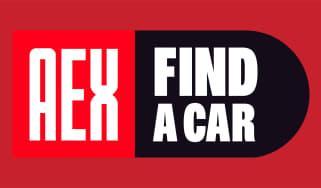Why value your car with us
Easy, free, and online
No hidden fees. Just enter your reg number and mileage.
Trusted valuation
Auto Express valuations use the latest market data for an accurate valuation.
Dealers compete for your car
If you choose to sell, our network of 5,500+ trusted dealers bid on your car and we bring you the best offer.
What impacts your car's value?
The value of any car depends on a wide range of factors relating to the type of car and its condition but also the market forces of supply and demand.
What increases the value of your car?
Make and model:
Cars from premium or luxury brands tend to be worth more than those from mainstream manufacturers. Rarity can also increase the price.
Market trends:
The car market is constantly moving with demand for different kinds of car shifting over the years or even with the seasons. SUVs are fashionable right now and convertible prices rise every summer.
Specification:
A desirable specification for the type of car is key. Nobody wants an executive car in a base spec but too many options fitted on a mainstream car won’t increase the price much.
Colour:
Bold colours outside or inside can be highly sought after on some cars but a turn-off on others.
Service history:
A complete service history is evidence that the car has been well cared for and maintained to the manufacturer’s standards.
Presentation:
You’ll be amazed what a quick wash and brush-up can do for your car’s value. Give it a good clean inside and out.
What decreases the value of your car?
High mileage: If your car has a higher mileage than average for cars of its type and age, it’s likely to be worth less. Good condition and a complete service history can help allay buyer fears, though.
Mechanical problems: Mechanical problems are a red flag to buyers who will immediately start wondering how much it will cost to fix the car. Getting issues sorted yourself before selling can be cost effective.
Cosmetic damage: A level of wear and tear in line with a car’s age and mileage is expected but more serious knocks and scrapes can reduce value.
Modifications: Some modifications can add value but most common changes made to a car’s looks and mechanical make-up will be viewed as a negative and bring the price down.

There's a large pool of verified dealers waiting to bid hassle-free on your used car- Paul Barker, Editor
Our valuations are based on the latest market data
You can even set a reserve price and get competitive offers from a network of 5,500 dealers ready to bid for the car.
Frequently Asked Questions
We can help you get an up-to-date car valuation in just a few clicks, for free. There are a huge number of factors impacting a car’s value from the make, model and specification to its condition and mileage, we use the latest market data and the value of cars recently sold as well as information you provide about your car’s condition and mileage to get an accurate price for your car.



